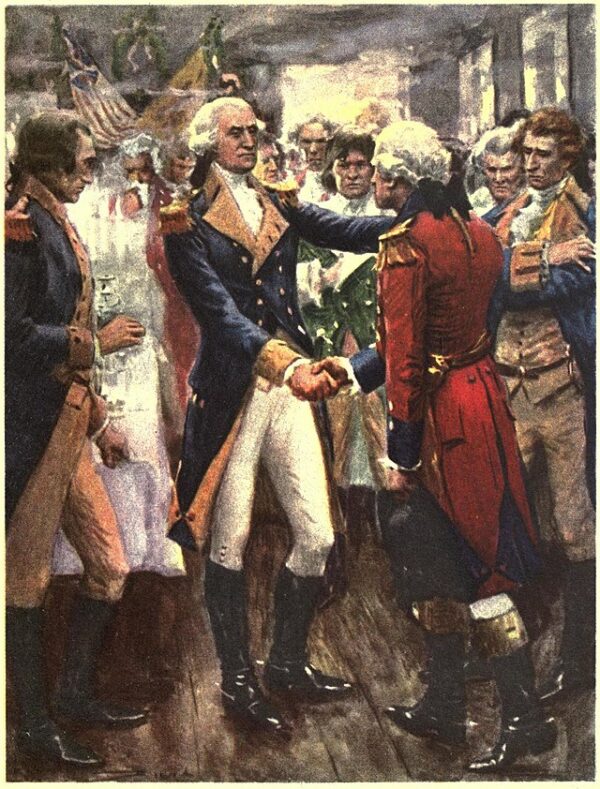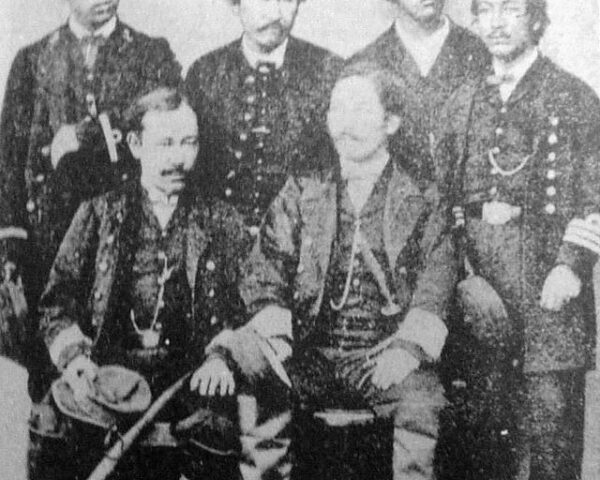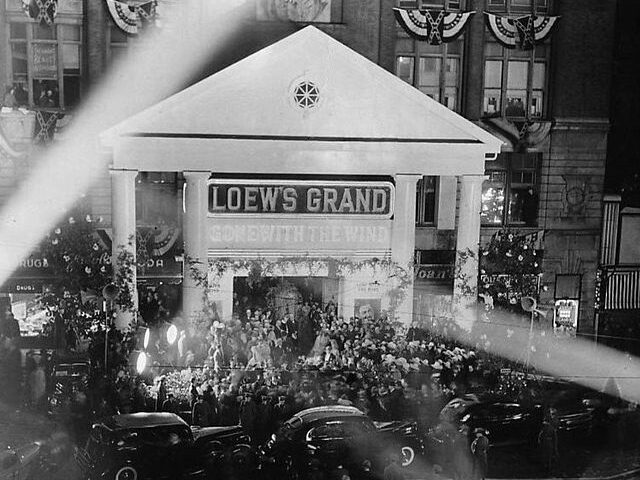On December 4, 1783, General George Washington stood before his officers at Fraunces Tavern in New York City to bid them farewell. The event marked the end of the American Revolutionary War and symbolized the transition from a nation in conflict to one embarking on the path of self-governance. This emotional farewell encapsulated the deep camaraderie forged during the war and underscored Washington’s humility and commitment to democratic ideals.
Fraunces Tavern, a historical landmark even in Washington’s time, was the fitting site for such a significant occasion. Located in lower Manhattan, it had served as a hub for revolutionary activity and a gathering place for the Sons of Liberty. Its role in the war as a site for planning and discussion imbued the farewell event with additional symbolic weight. The war had officially ended with the signing of the Treaty of Paris in September 1783, and by November, British forces had evacuated New York City. The city, once a British stronghold, was now fully returned to American control, making it an ideal setting for Washington’s final farewell to his officers.
The gathering of officers at Fraunces Tavern was more than a social occasion; it was a moment of profound reflection and gratitude. Washington’s leadership had been instrumental in the American victory, and his officers had been his steadfast companions through the trials of war. Many had endured years of hardship, suffering through brutal winters, scarcity of resources, and the ever-present threat of defeat. For these men, Washington was not merely a military leader; he was a symbol of perseverance and unity.
Washington’s speech at the farewell was brief but deeply emotional. With a voice heavy with emotion, he expressed his gratitude to his officers, acknowledging their sacrifices and loyalty. He praised their unwavering commitment to the cause of independence, emphasizing that the success of the revolution was a shared triumph. According to contemporary accounts, Washington’s words moved many in the room to tears. After speaking, he raised a glass and offered a toast to his officers, further cementing the bond they had shared.
Following the toast, Washington went to each officer, shaking their hand in a personal gesture of farewell. This act of individual acknowledgment reflected Washington’s leadership style, which emphasized respect, humility, and genuine care for his subordinates. The farewell was not merely a formal ceremony but a deeply personal moment that resonated with those present.
The significance of the event extended beyond the immediate circle of officers. Washington’s decision to relinquish his command and return to private life was unprecedented. In an era when victorious military leaders often seized power, Washington’s choice to step away demonstrated his commitment to the principles of republicanism and civilian leadership. His actions set a powerful example for the young nation and solidified his legacy as a leader devoted to the greater good.
Washington’s farewell at Fraunces Tavern also marked the beginning of his transition from military leader to statesman. Within weeks, he would resign his commission as commander-in-chief of the Continental Army before Congress in Annapolis, Maryland. This act symbolized the formal handover of military authority to civilian government, a cornerstone of American democracy.
The farewell at Fraunces Tavern remains a defining moment in American history, capturing the spirit of sacrifice, camaraderie, and commitment to democratic ideals that characterized the revolutionary generation. The tavern itself stands today as a museum, preserving the memory of that poignant December day. Visitors can reflect on the legacy of Washington and the officers who fought alongside him to secure the nation’s independence.






